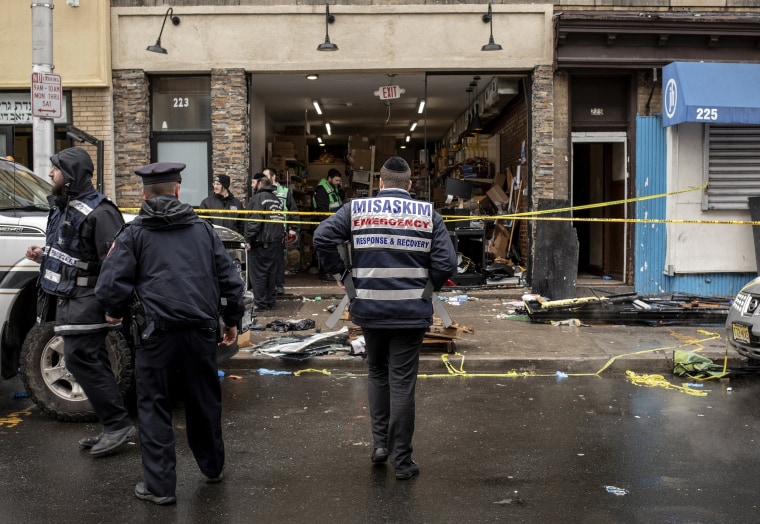Five people stabbed during a Hanukkah celebration in Monsey, New York. Four killed in a shooting at a Jersey City grocery store. A Brooklyn woman hit in the head as she walked with her child.
The rash of anti-Semitic attacks gripping the New York-New Jersey area may feel like chilling coincidences, but statistics show they’re part of a wave of anti-Semitic violence that has risen across the country over the past half-decade.
In 2014, 609 anti-Jewish hate crime incidents were reported to the FBI. By 2018, the most recent year for which statistics are publicly available, that number had increased nearly 40 percent, to 835 incidents.
Anti-Semitic hate crimes hit a seven-year high in 2017, fueled in part by an Israeli American man who called in waves of bomb threats against Jewish community centers across the country.
And while 2018’s total was actually lower than the year before, felony assaults, arson and murders — including the Pittsburgh synagogue shooting that left 11 dead — were all up.
The dip in anti-Semitic hate crimes between 2017 and 2018 comes despite hate crimes in the U.S. staying about even those two years.
“While hate crimes were flat, they're getting more violent,” said Brian Levin, a professor and the director of the Center for the Study of Hate and Extremism (CSHE) at California State University, San Bernardino.
The findings mirror those gathered by the Anti-Defamation League, which tracks anti-Semitic and other hate incidents. Thirty-nine anti-Semitic assaults were reported to the ADL in 2018, and the 2019 totals, though not yet final, point to a nearly 20 percent increase.
“These are problems across the country,” Aryeh Tuchman, associate director of the ADL’s Center on Extremism, said.
The wave is most apparent in America’s largest cities. Jews were the most frequent target of hate crimes toward people in New York, Los Angeles and Chicago in 2019, according to a CSHE analysis of federal and local crime data. The group’s preliminary analysis of 2019 data shows that New York will have recorded the most anti-Jewish hate crimes since 1992.
Experts say it’s hard to pin down a cause for the increase in violence. Previous spikes in hate crimes have been tied to geopolitical events, Levin said, citing the two months after the terror attacks on Sept. 11, 2001, as the worst months for hate crimes on record.
While authorities say the Pittsburgh shooter was motivated by white nationalist beliefs and the Jersey City shooters expressed beliefs in the Black Hebrew Israelite movement, Tuchman said much is still unknown about many attacks, making it hard to draw wider conclusions.
“What we really need to do is dig into who are the perpetrators,” Tuchman said. “It's not easy to do that sort of deep dive into the ideology on lower level attacks that don't make national headlines.”
CORRECTION (Jan. 3, 2020, 7:33 p.m. ET): An earlier version of this story misspelled the last name of the director of the Center for the Study of Hate and Extremism at California State University, San Bernardino. He is Brian Levin, not Levine.

